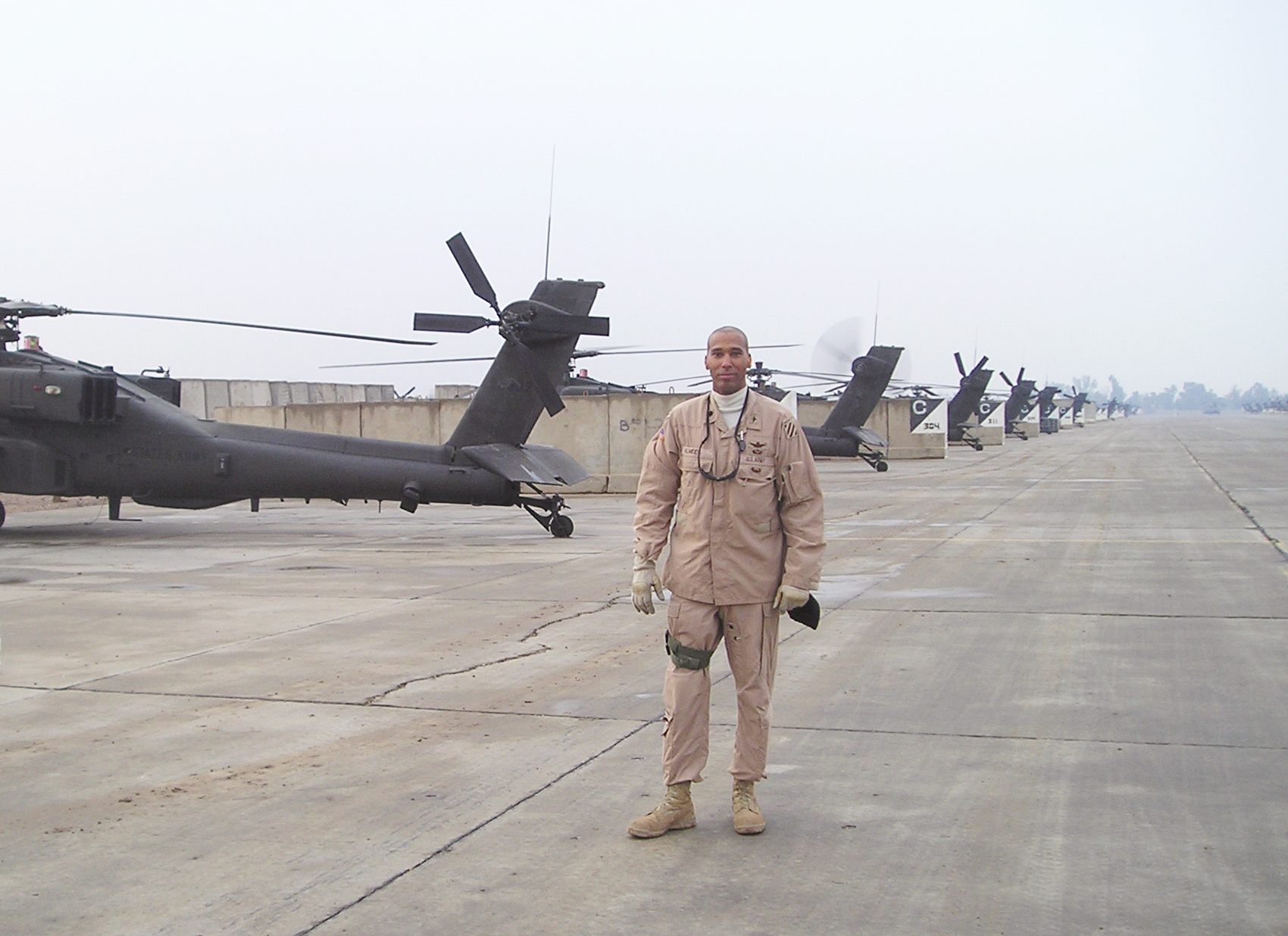Lessons in Leadership: Life After Combat
-
-
Slice of MIT
Filed Under
Recommended

Pedro Almeida ’88 believes we can learn all we need to know about leadership in kindergarten. “Be kind, treat people with respect,” says Almeida, who retired as a colonel in 2015 after a 27-year career as an aviation officer in the US Army, a career that included tours of duty in Iraq and Afghanistan. “And be sure everyone in the organization knows what the mission is.”
Born in New Bedford, Massachusetts, to immigrant parents from Cape Verde, Almeida currently serves as chief operations officer for School District 49 in Colorado Springs, Colorado. A materials science and engineering major at MIT, Almeida has spent his life perfecting and practicing those kindergarten lessons. In high school, he followed his older sister’s example and enrolled in Junior Reserve Officers Training Corps (JROTC), serving as cadet commander. “I liked the sense of connection and focus in that program,” Almeida recalls. “And I liked having a purpose beyond my own ambitions. It sounds flowery, but if you’re in the military and you think it’s about you, you’re in the wrong place.”
Almeida came to MIT in 1984 on an ROTC scholarship. The military part of campus life felt familiar. But like many first-year students, he found the academics challenging. “I remember one October evening,” he says. “I’d just failed a calculus test for the third time. I walked down to the Charles River, sat down, and asked myself if I was in the right place. I was in serious self-doubt.”
Though tempted to quit, Almeida decided to hang on. He improved his study habits and found a way to pass calculus. As a senior, he was named the country’s top aviation cadet. “It was an important life lesson,” he notes. “About perseverance. About facing unexpected challenges and finding different ways to meet them.”
With an MIT degree in hand, Almeida spent 16 months at flight school. He then deployed to Iraq as a platoon leader in 1991, leading a platoon of six Apache helicopters and providing security for Iraq’s Kurds. He returned to Iraq in 2005 as a lieutenant colonel, commanding a battalion of Apache aircraft that secured the skies in and around Baghdad. Even in the chaos of war, Almeida honed his leadership acumen. Every three months, he met with all the soldiers under his command to apprise them of the brigade’s progress and of their role in it. “Pilots have a good overview of the mission at 10,000 feet,” he explains. “But it’s just as important to talk with the vehicle handlers and refuelers, to help them connect what they’re doing to the overall mission. Because you can’t fly an Apache helicopter without fuel or proper maintenance.”
In between the two Iraq deployments, he served as a foreign area officer at the US embassy in Niger, as aide-de-camp to army chief of staff General Eric Shinseki, and completed a master’s degree in international affairs at Columbia University.
In 2010, he deployed to Afghanistan as a colonel, this time in charge of six aviation battalions. The responsibilities were vast: attack missions, reconnaissance, shuttling vehicles and personnel around the battlefield, and evacuating wounded soldiers. In all, Almeida logged over 2,000 flight hours—800 of them in combat. Returning to civilian life in 2015, Almeida set his sights on another lifelong interest: education. He taught at the high school and community college level. Then he applied for his current position at Colorado Spring’s District 49.
Today, his responsibilities include transportation, nutrition services, security, IT, and facilities. And he still applies the same leadership lessons he learned in kindergarten, and in the military, and at MIT. “In any organization where people are treated with respect, you can start building a team,” he reflects. “And building a team is the single most important factor in determining success or failure.”
While he does have a license to pilot fixed-wing, single-engine aircraft, Almeida hasn’t flown a plane since he returned to civilian life. “I don’t think that kind of flying will scratch the itch like flying in combat did,” he says. “But I will confess I still get a rush when I’m boarding a commercial flight and get a whiff of that jet fuel.”
Photo (top): Pedro Almeida ’88 on flight line in Taji, Iraq, in 2005, where he was in command of an Apache Battalion Task Force in Operation Iraqi Freedom for one year of combat operations.







